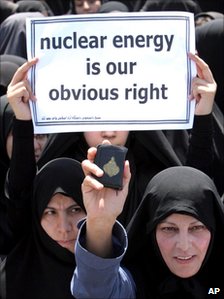By imposing limitations on the basic rights of a specific group to treating a specific race as commodities, history prompts an ugly realization of how racism and fear permeates human relations. Such situations from past occurrences should never be repeated. As our society continues to advance on the technological and academic fronts, one should understand that violence cannot bring about positive change. As Reverend Martin Luther King has taught us, “the ultimate weakness of violence is that it is a descending spiral, begetting the very thing it seeks to destroy.”
Sadly, a contemporary case of inhumanity is occurring in a democratic state that has close relations with the US. An outlook on the Israeli-Palestinian conflict will be the focal point of this article. What this specific case demonstrates is that history lessons do not always prevent others from repeating past mistakes.
[captionpix align=”left” theme=”elegant” width=”325″ imgsrc=”http://natoassociation.ca/wp-content/uploads/2013/11/PHO-09Sep11-177416.jpg” captiontext=””]
The Israeli-Palestinian Conflict: How Ordinary Civilians are Suffering
Israel severely restricts the freedom of movement of Palestinians by enforcing checkpoints in the occupied West Bank. It claims that these checkpoints are vital to stop external threats, such as suicide bombers, from entering its territory. Without a doubt, these checkpoints are forms of collective punishment towards the Palestinian society. Israel’s policies are based on the premise that every Palestinian is a security threat which, in turn, allows the state to justify the imposition of restrictive measures on Palestinians’ freedom of movement.
Israeli checkpoints and barriers are an everyday occurrence for Palestinians. Essentially, people are trapped because Palestinian cities are sealed off which, consequently, hinders any access to medical care, schools, and other necessities. Although the severity of restrictions on persons that want to cross the checkpoints varies, all Palestinians must have identity cards or cross permits.
In addition to checkpoints, Israel has blocked access roads to some of the main routes in the West Bank by using physical obstructions, such as dirt piles, iron gates, trenches, and concrete blocks. The purpose of these obstructions is to prevent vehicles from crossing into Israel, in addition to restricting Palestinians from entering Israel. Also, Palestinians are forbidden to use certain roads. As an example, in February 2013, Israel did not allow Palestinians to use 67 kilometers of roads in the West Bank. It was for the sole use of Israelis and, consequently, Palestinians were forced to find an alternative root or to travel by foot.
Sadly, situations where pregnant women are in need of appropriate medical attention also suffer, specifically because they cannot cross checkpoints with ease. In such situations, many Palestinian women were forced to give birth at checkpoints which, sadly, resulted in infant and maternal deaths. For example, 67 Palestinian women gave birth at checkpoints from 2000 to 2005 and, as a result, 36 infant deaths occurred. In addition, from 2000 to 2007, 10 percent of Palestinian women faced delays while traveling to the hospital.
Documenting Checkpoints: The Women of Machsom Watch
An Israeli activist group known as the Machsom Watch has maintained a presence at checkpoints since its inception in 2001. A group of 400 Israeli women protest and monitor activities occurring at checkpoints. The objective of Machsom Watch is to document the everyday realities faced by Palestinians and to influence public opinion in Israel, as well as around the world, for the purpose of putting a stoppage to the Israeli occupation. By maintaining a presence at checkpoints, the NGO is able to influence the way that Israeli soldiers treat Palestinians at checkpoints. But, the long-term goal is to change Israeli policy in the West Bank.
These initiatives are widely spread amongst media platforms but it seems as if this information only reaches those who are already sympathetic towards Palestinians. As Israeli-Palestinian talks continue, the question of whether these two parties can negotiate an effective peace plan is essentially what the world is asking. Sadly, since the inception of the Israeli-Palestinian talks, there are no meaningful signs of progress. Prime Minister Benjamin Netanyahu wants Palestinians to recognize Israel as a Jewish state, whereas Palestinians are solely concerned about their land that was captured by Israel in 1967. Mr. Netanyahu rejects Palestinian demands.
The 2013 peace talks ought to feel like a moment of optimism for reaching a plausible negotiation between the Israelis and the Palestinians but, unfortunately, due to the ongoing deadlock, the conflict will continue. And as it does, the living standards of Palestinians will continue to degrade. Though activists work hard to raise awareness and promote the basic rights of Palestinians, fear of the “other” will continue to negatively affect those who must cross checkpoints on a daily-basis. This will not be the first round of negotiations to have failed and have nothing happen.




